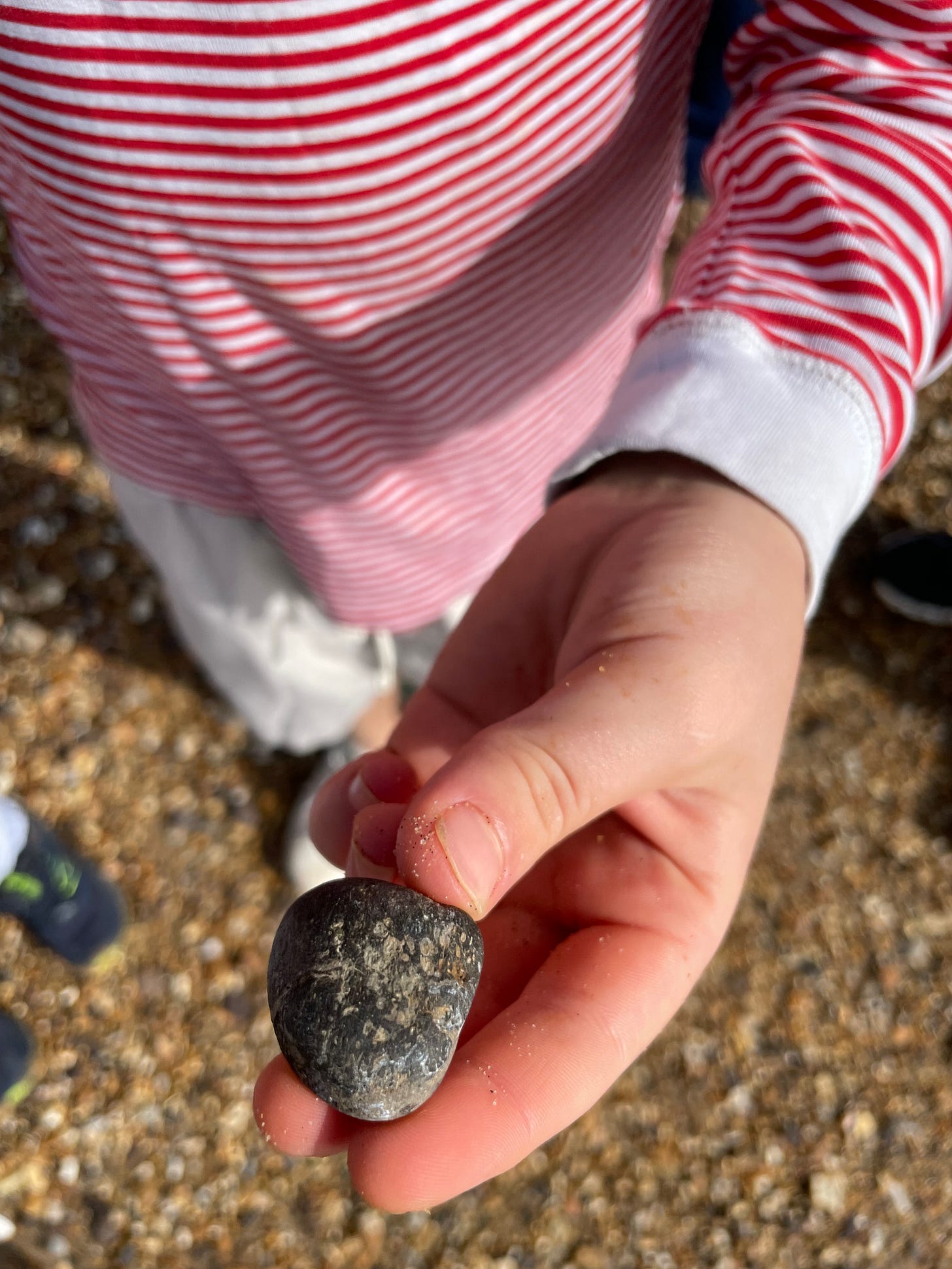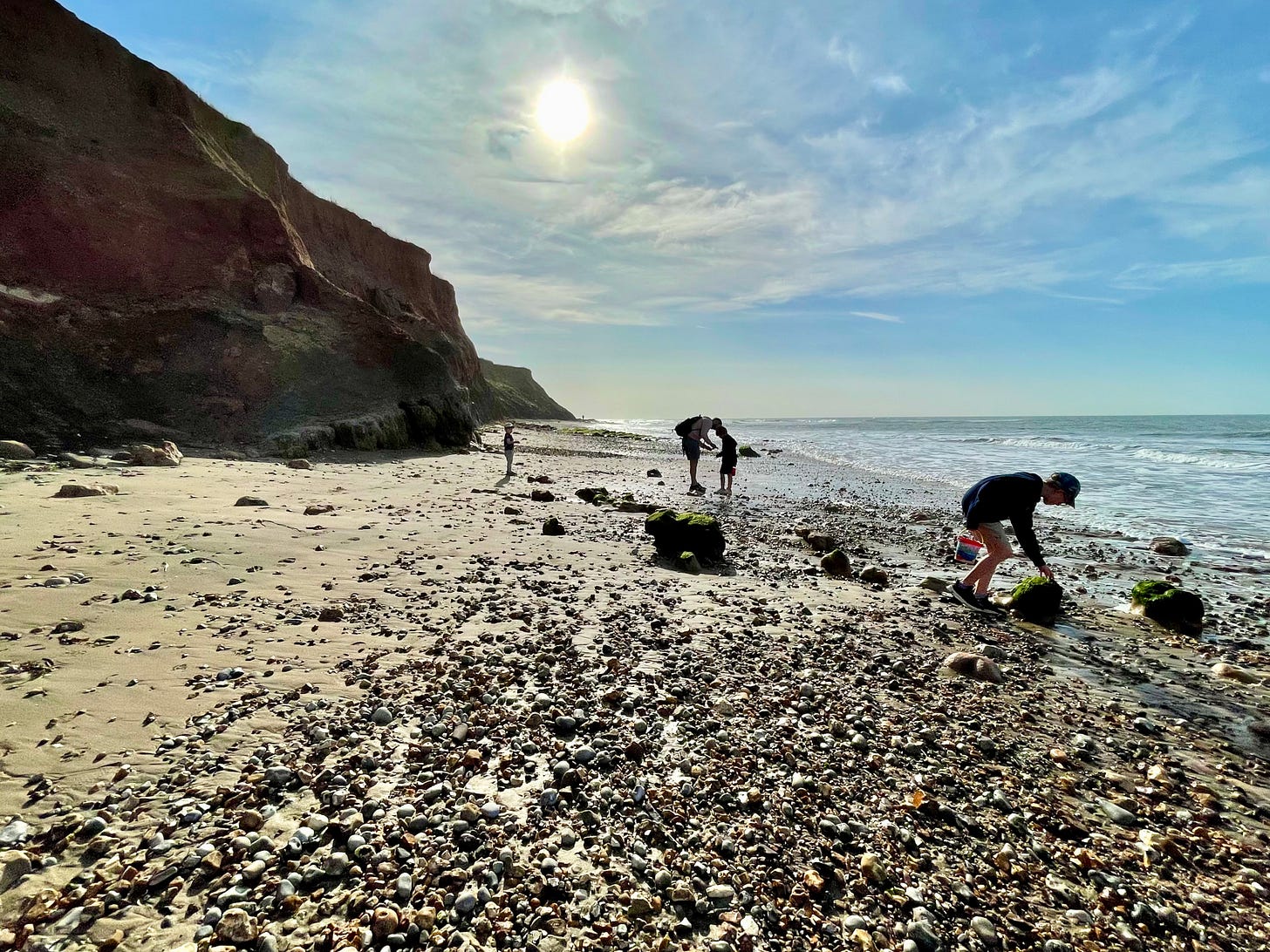Expiration of the Fittest
our daily bread is our miracle
Riding shotgun, she insisted he stop, jumped from the carriage, and from a pile of earth recently quarried, she pulled out the first land-dwelling dinosaur teeth.
That’s one story of how the iguanodon was discovered. There are many. It is, after all, Gideon Mantell’s origin story as the man who made one of the world’s most important discoveries, his ticket to the Geological Society of London. In his first telling, it was his wife, Mary Ann, who spotted the teeth on a drive through Sussex, England, and it is my favorite.

Even as he was charting ancient history and no doubt seeing the smallness of a human life, Gideon Mantell remained obsessed with his own legacy. His family had fallen from noble grace, and Mantell’s father, a mere shoemaker, was someone to be escaped. Mantell himself became a country doctor, an obstetrician, but his side hustle was geology, a relatively new study and his ticket to notoriety.
He struck a deal with a local quarryman to inform him of any odd bits that showed up in digging the quarry. From the quarry’s refuse and in between delivering babies, Mantell started to amass fossils of land-based prehistoric species. And through connecting the teeth’s likeness to iguana’s teeth, extinct reptiles were acknowledged for the first time.
This weekend, we found iguanodon footprints, a mother and her babies’. Found is a little presumptuous. Iguanodon footprints were pointed out to us by our fossil guide and local paleontologist, Megan.
The Isle of Wight is Europe’s treasure trove of fossils. We hunted on the southwestern coast, where the cliffs are a rainbow of prehistoric promise. The Wealden layer, a deposit of sandstones and mudstones, preserves dinosaur remains of the early Cretaceous period, ranging from 130 to 65 million years old. And when it rains, the fossils reveal themselves, breaking from the cliffsides.
“After this period, the seas rose 145 meters above where they stand now, wiping species out that couldn’t adapt to salt water,” Megan tells us as one of my children cries about his wet shoe. Before the seas rose, the spot we are standing on was a freshwater river into France, then it became a series of lakes, then the ocean floor. The island reached its current form a tender 9000 years ago.
We are a blip and filled with self-importance; as we fossil hunt, each of my four children—ages 3 through 11—has a temper tantrum. A scraped shin, a lost pebble, a wet shoe, a missing shoe, the wrong shorts, the equal division of banana bread is not equal enough. All take precedence over ancient history.
It’s not just my children providing distraction from unearthing history. My husband is obsessing about what car to buy, worrying our options like a hangnail, seeing the right and the wrong van everywhere on the shore road above us.

I am looking at the fossilized dinosaur dung in my hand and considering the pile of essays awaiting my feedback, the piles of laundry we will have once home tomorrow. And then, like a Venus in wetsuit emerging from the sea, surfboard underarm, Benedict Cumberbatch diverts my attention.
It is not easy to focus on the ancient.
On our walk, I keep picking up sandstone. I can’t tell the difference between ordinary rocks and ancient history frozen. So much of life is a race to discovery, before our cells make themselves over into another layer of the earth. We all want to discover something exceptional and we bring Megan our rocks again and again, cradling in our palms what we hope is ancient.
And indeed, our hope is ancient.
What a gift we are as a species: the only of our earth to chronicle ancient history of which we account for less than a cut toenail. And still we participate so readily in the quotidian of now.
There’s a comfort, as our seas rise, as the promise of our species is looking undone, in knowing the sea has risen before and will rise again, and while we may not witness it, we are the species that charted it before, told stories about it until it made sense, predicted it coming again. Saw and didn’t see our own participation in it. Saw that we too would be pulled under eventually, as individuals and collectively.
And yet, we took pleasure in the mug of tea, the hand held, felt the slights and slings of criticisms and heartaches, waffled over cars and shirts and ice cream flavors, even as we knew in the proof of the earth around us, of our certain extinction. To look at cliffs that are a confrontation of our insignificance and still think with some feeling about laundry is astounding.

At the end of Orlando’s 400-year life, she realizes the present moment is the most “terrifying revelation there can be.” In fact, the only way “we survive the shock at all is […] because the past shelters us on one side and the future on another.”
And on this beach, I realize the present saves us, too, from the magnitude of the past, the eradication of the future.
We lose ourselves in our details, and so we live.



Absolutely love the tension between all of these different worlds you're describing. The flow between the past, present, future and the juxtaposition of humanity, your family roles, and your own identity. So good!
"A scraped shin, a lost pebble, a wet shoe, a missing shoe, the wrong shorts, the equal division of banana bread is not equal enough. All take precedence over ancient history." I felt this in my bones as a dad of 2 boys under 3.
"We all want to discover something exceptional and we bring Megan our rocks again and again, cradling in our palms what we hope is ancient. And indeed, our hope is ancient." Wow, love this Alissa!